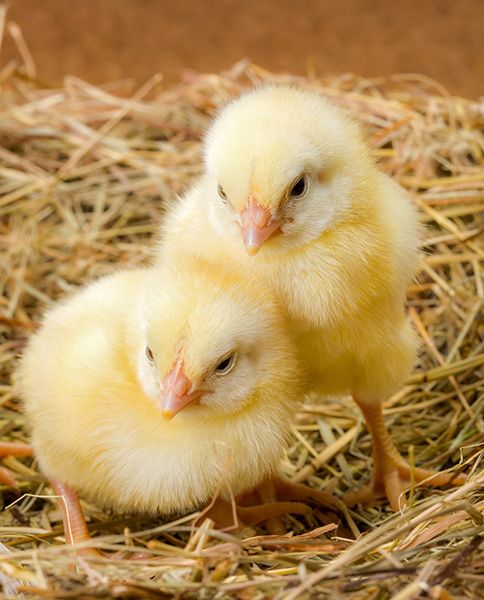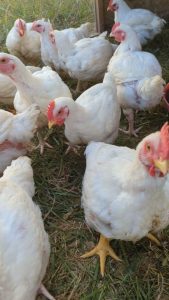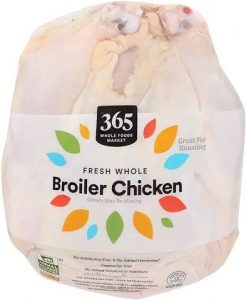When it comes to raising broiler chickens, proper nutrition is key to achieving optimal growth, health, and profitability. Providing a well-balanced diet that meets the nutritional requirements of broilers at different stages of their growth is crucial. In this comprehensive blog article, we will explore the best practices for broiler chicken feed and delve into the essential nutrients necessary for their development and performance.

Section 1: Understanding the Different Feeding Stages of Broiler Chickens
1.1 Starter Feed:
During the first few weeks of a broiler’s life, they require a specialized starter feed. This feed should contain a high-quality protein source, ranging from 20% to 24%, to support rapid growth and muscle development. Additionally, the starter feed should include a balanced combination of vitamins, minerals, and essential amino acids. To ensure easy consumption, the feed particles should be small in size.

1.2 Grower Feed:
As broilers transition from the starter stage to the grower stage, their nutritional needs change. The grower feed typically contains slightly lower protein levels, around 18% to 20%, as the chickens’ growth rate slows down. However, it should still provide adequate nutrients for continued development. The grower feed should also include calcium for bone strength and phosphorus for energy metabolism.

1.3 Finisher Feed:
In the final stage before processing, broilers are fed finisher feed. The finisher feed contains lower protein levels, around 15% to 18%, as the focus shifts from growth to achieving the desired meat quality. The feed should have a balanced ratio of carbohydrates, fats, and proteins to promote efficient weight gain and optimum carcass composition.

By the way you should Note that our company can help you to start by giving you all the necessary information you need to get started if not yet in the business. Please check our online shop, we have all standard business proposals for different capacities at very a cheap price made by the best agricultural specialists as well as Standard design plans that are made by the best agricultural architects around the globe. please visit our online shop now using the links below to witness by yourself
Design plans (FARM HOUSE DESIGNS – Kimd Construction & Farm Consultants)
Business plans (BUSINESS PLANS & PROPOSALS – Kimd Construction & Farm Consultants)
Welcome back from visiting our shop, hope you have placed your order for any of our products or you can place it after navigating more of our informative articles.
so let’s continue with our article!
Section 2: Key Nutritional Requirements for Broiler Chickens
2.1 Energy:
Broiler chickens require a high-energy diet to support their rapid growth. The feed should include energy-rich ingredients such as corn, wheat, and soybean meal. These ingredients provide the necessary carbohydrates and fats for energy production and weight gain.
2.2 Protein:
Protein is crucial for muscle development and overall growth. The feed should contain high-quality protein sources such as soybean meal, fish meal, and poultry by-products. These protein sources provide essential amino acids that are vital for broiler growth and development.
2.3 Vitamins and Minerals:
Broilers require a wide range of vitamins and minerals for various physiological functions. The feed should be supplemented with vitamins A, D, E, and B-complex to support healthy growth, immune function, and overall well-being. Additionally, minerals like calcium, phosphorus, and trace minerals should be included to promote bone strength, proper digestion, and metabolic functions.
2.4 Amino Acids:
Amino acids are the building blocks of proteins. Supplementing the feed with essential amino acids such as lysine, methionine, and threonine is crucial for optimal growth and feed conversion. These amino acids ensure that broilers can efficiently utilize the protein in their diet, leading to improved growth rates and better feed efficiency.
Section 3: Best Practices for Broiler Chicken Feed Management
3.1 Feed Quality:
Using high-quality feed from reputable suppliers is essential to ensure consistent nutritional content and minimize the risk of contamination. Regularly test the feed for its nutrient composition to ensure it meets the required standards.
3.2 Feed Form:
Choose the appropriate feed form, such as mash, crumble, or pellets, based on the age and preference of the broilers. Pelleted feed is often preferred as it reduces feed wastage and promotes uniform nutrient intake.
3.3 Feeding Schedule:
Establish a regular feeding schedule with consistent feeding times to promote healthy eating habits and minimize feed wastage. Broilers should have access to feed throughout the day to ensure continuous nutrient availability.
3.4 Water Availability:
Provide clean and fresh water at all times, as it is essential for proper digestion and nutrient absorption. Monitor water quality regularly and ensure an adequate supply for the number of broilers in the flock.
Conclusion:
Proper nutrition is crucial for the growth, health, and profitability of broiler chickens. Following the best practices for broiler chicken feed, including providing appropriate starter, grower, and finisher feeds, meeting nutritional requirements, and implementing effective feed management strategies, will help maximize the potential of broiler chickens and ensure a successful poultry farming venture. By prioritizing nutrition and implementing sound feed management practices, you can raise healthy broilers and achieve optimal performance in terms of growth rate, meat quality, and overall profitability.
You can also explore about prepare feeds for zero grazing




